The Horizons team features many influential Twitter users. This curates a wealth of insights, knowledge, and information about transformation in health and care from other thought leaders across the world. (Tip: to read an article or watch a video mentioned in a tweet, click on the blue text. To view the original tweet, click on the image).
The School for Change Agents
Congratulations to participants such as Ana-Maria who are progressing through School. If you're doing School and on Twitter do send us a tweet to let us know how you're getting on and your reflections on your learning! Not signed up yet? Sign up to School.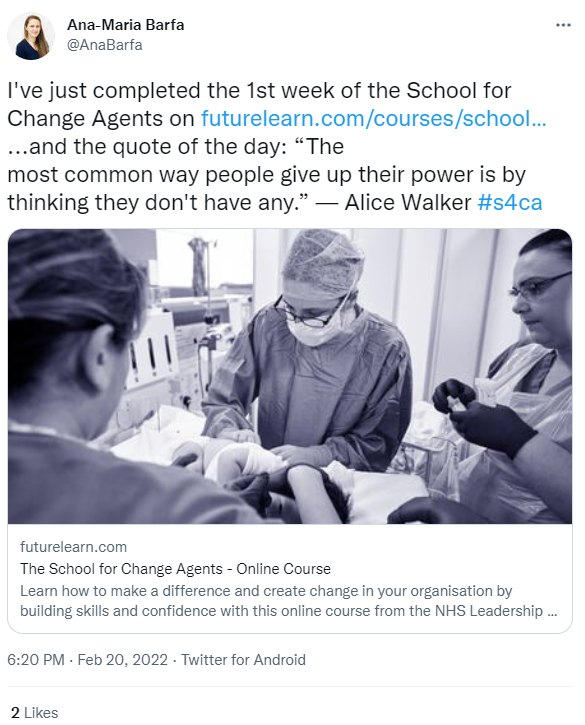
Week 2 of School looks at resourcefulness, and features Dr Rachel Morris talking about how you can 'tame your inner chimp'. 
On @Sch4Change people are reflecting on how change starts with us as individuals. This graphic Leigh spotted on Instagram sums it up really well .Change agency is about being: relational and creating possibilities.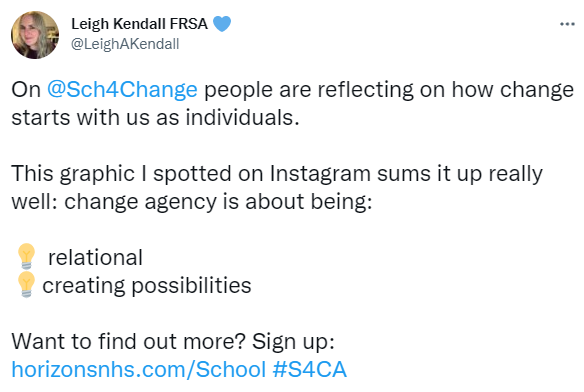




Wellbeing


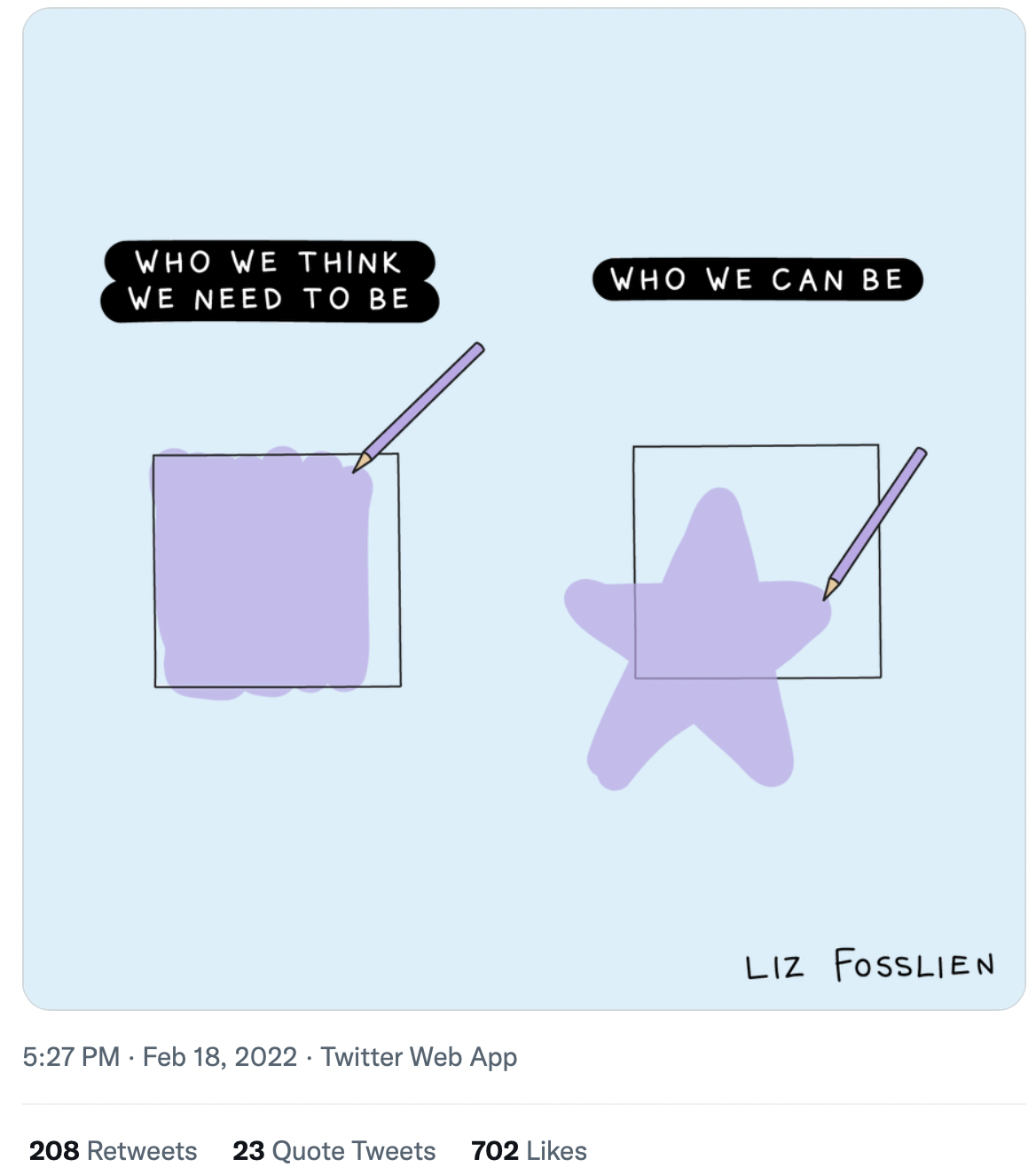
#SolvingTogether
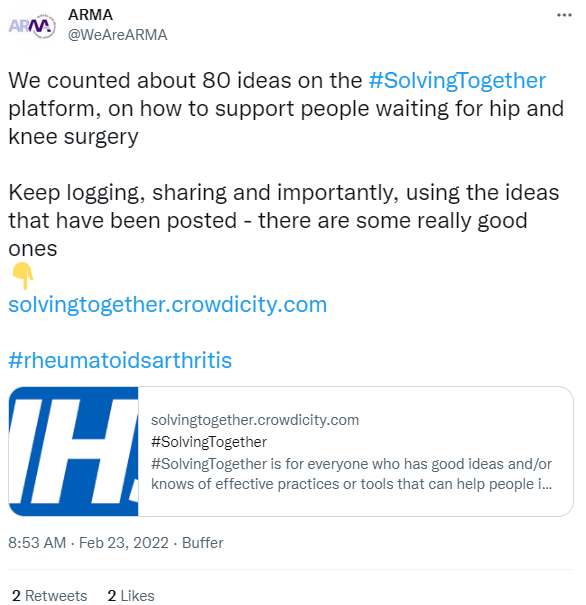
Improvement



Toxic cultures are often the product of behaviours that were once helpful. To avoid this:
- Identify clashes between preached and practiced
- Spot changes that need new behaviours
- Create culture whistleblowers
- Support desired behaviours
Click here to read the Forbes article, 'Adapting Corporate Culture – Before It’s Too Late: Lessons From Better.com' to find out more.
How to respectfully discuss contentious issues at work:
- Make it safe
- Get curious
- Start with facts, not judgment or opinion
- Don't focus on convincing
- Be sceptical of your own viewpoint
- Own your right to have your opinion
For more insight on this read 'How to Respectfully Discuss Contentious Issues at Work', from the Harvard Business Review by clicking here.
Leadership
Sometimes leaders say "psychological safety is tricky here due to the wider culture of this organisation". Yet each of us as leaders can promote psychological safety, every hour, every day, through our own actions. See Google's summary of actions for managers via @AmyCEdmondson.
If you're leading a transformation initiative you should expect flak. Actions to take:
- Engage with objectors to understand why
- Appreciate that some people lead by resisting new ideas
- Clarify the problem
- Seek opinions
- Ask for their help
For more insight on this, read this blog, 'Leadership Caffeine™— If You’re Leading Change, Expect Flak'.
Too often, leaders jump straight from high level strategy/goals to feature ideas and actions. The most successful teams:
- Have a strategy
- Translate it into models
- Add "minimally viable measurement"
- Identify leverage points
- Explore options
- Run experiments
To find out more on this, read @johncutlefish explanation of it by clicking here.
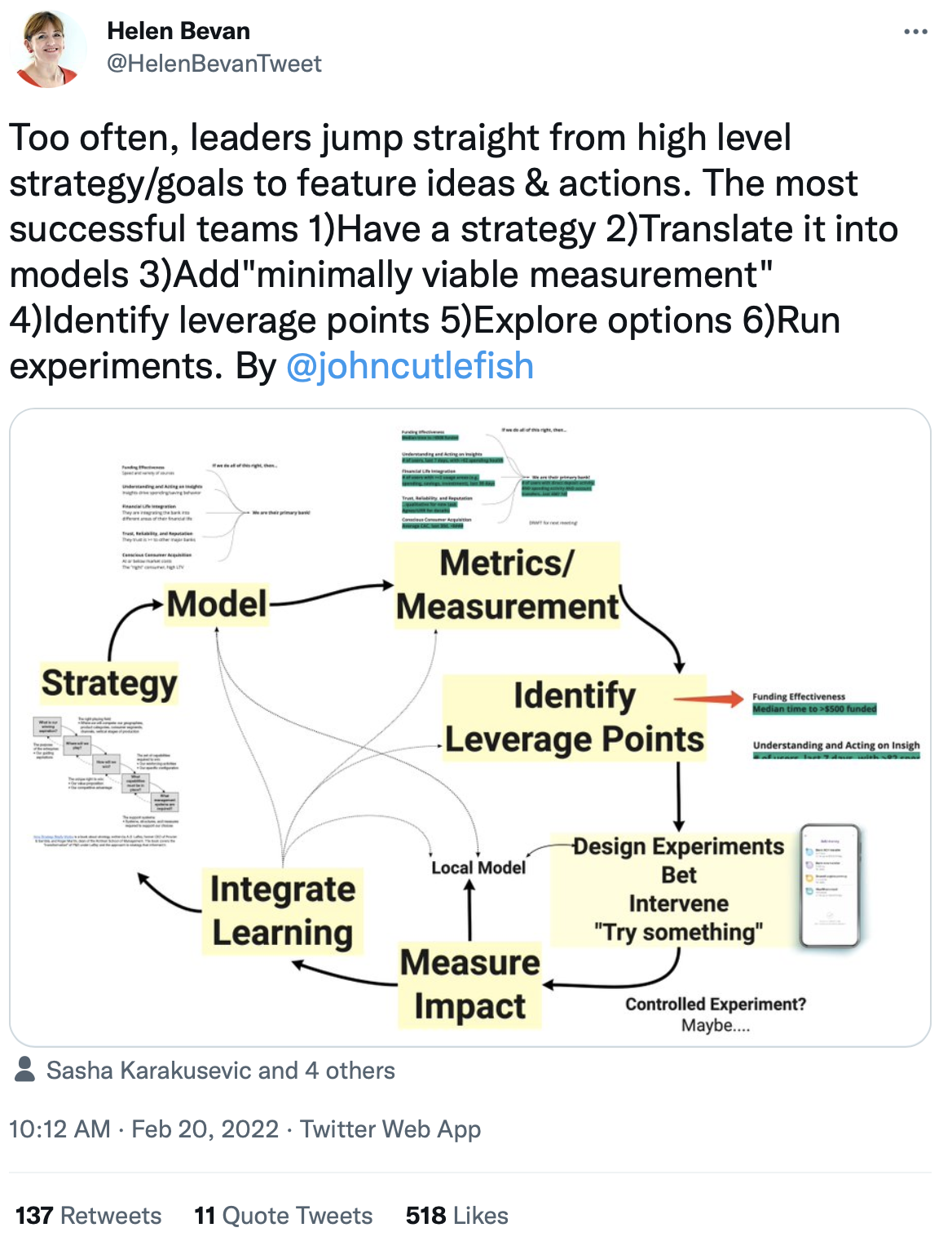
Spread and Adoption











/Passle/5a5c5fb12a1ea2042466f05f/MediaLibrary/Images/6168334917af5b10f4bf1d30/2022-04-14-15-27-52-040-62583d78f636e9115805b2d5.png)
/Passle/5a5c5fb12a1ea2042466f05f/MediaLibrary/Images/6168334917af5b10f4bf1d30/2022-08-05-09-59-36-465-62ecea08f636e906acfed639.jpg)
/Passle/5a5c5fb12a1ea2042466f05f/MediaLibrary/Images/6168334917af5b10f4bf1d30/2022-07-28-14-57-17-405-62e2a3cdf636e9180c9835cb.png)
/Passle/5a5c5fb12a1ea2042466f05f/MediaLibrary/Images/6168334917af5b10f4bf1d30/2022-07-20-10-16-56-533-62d7d618f636ea07987f6668.png)
/Passle/5a5c5fb12a1ea2042466f05f/MediaLibrary/Images/6168334917af5b10f4bf1d30/2022-07-15-09-55-32-858-62d13994f636ea1398e71aa9.jpg)